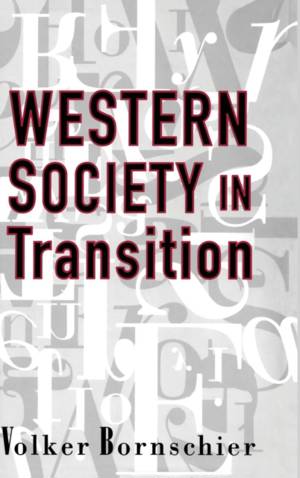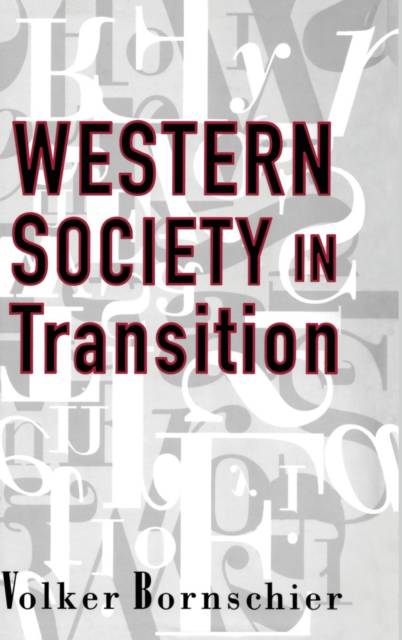
Door een staking bij bpost kan je online bestelling op dit moment iets langer onderweg zijn dan voorzien. Dringend iets nodig? Onze winkels ontvangen jou met open armen!
- Afhalen na 1 uur in een winkel met voorraad
- Gratis thuislevering in België vanaf € 30
- Ruim aanbod met 7 miljoen producten
Door een staking bij bpost kan je online bestelling op dit moment iets langer onderweg zijn dan voorzien. Dringend iets nodig? Onze winkels ontvangen jou met open armen!
- Afhalen na 1 uur in een winkel met voorraad
- Gratis thuislevering in België vanaf € 30
- Ruim aanbod met 7 miljoen producten
Zoeken
Omschrijving
An enormous acceleration of history has occurred in the current decade, thereby radically changing world society in many respects. The core countries - grouped around the triad formed by the United States, Japan, and the European Union - have experienced successive waves of change marked by phases of ascent, unfolding, and decay of societal models. What seemed stable and predictable in past decades came close to collapse or broke down entirely. As a result, we are now living through a crisis of legitimation characterized by acute contradictions. A new order, with a fresh, basic consensus around an overarching set of norms that allows problems to be solved efficiently, has not yet crystallized.Western Society in Transition examines the succession of societal models of the Western world and indications of its probable shape in the future. Bornschier characterizes the 1985-1995 period as a decade of Third World debt and depression; continued economic decline in the United States; a steady ascent of Japan; Western Europe's move toward political union, and the collapse of the Soviet Union. Against this background, he sketches various elements of a theoretical perspective he calls evolutionary conflict theory. The primary focus of interest of this theory is not on single societies, but on measures of social transformation at the core of world society. Western Society in Transition deals with fundamental questions: How does social order arise and why does it dissolve? What provides social cohesion? What makes society progress? Institutional spheres of Western society such as technology, firms, the market, state building, education, power, conflict, and social movements are analyzed in detail.Peter Lengyel, editor emeritus of the International Social Science Journal says of Western Society in Transition, "I have never seen such a succinct, clear, and persuasive treatment which adroitly draws together elements from economics, history, sociology, and technology into a strictly contemporary kind of political economy." This timely assessment of the Western world will be of interest to social scientists, historians, economists, and international relations scholars.
Specificaties
Betrokkenen
- Auteur(s):
- Uitgeverij:
Inhoud
- Aantal bladzijden:
- 464
- Taal:
- Engels
Eigenschappen
- Productcode (EAN):
- 9781560002277
- Verschijningsdatum:
- 30/01/1996
- Uitvoering:
- Hardcover
- Formaat:
- Genaaid
- Afmetingen:
- 161 mm x 237 mm
- Gewicht:
- 798 g

Alleen bij Standaard Boekhandel
+ 235 punten op je klantenkaart van Standaard Boekhandel
Beoordelingen
We publiceren alleen reviews die voldoen aan de voorwaarden voor reviews. Bekijk onze voorwaarden voor reviews.











